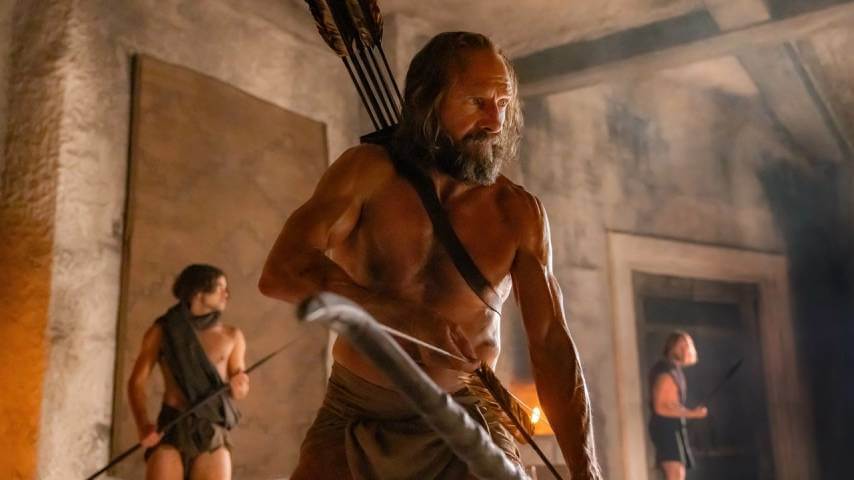A stirring Ralph Fiennes prevents The Return from being a failed Odyssey
A grimdark take on The Odyssey’s end (barely) finds its way home.
Photo: Bleecker Street
Few stories have been reimagined, relitigated, reframed, and remade as much as those from Greek myth and poetry, and of these, The Odyssey is a usual suspect. From the Coen brothers’ jailbreak flick O Brother, Where Art Thou? to James Joyce’s infamously dense Ulysses, this Homeric epic’s influence has reverberated through the ages. So, in the year 2024, how do you retell this ancient story in a novel way? If you’re director Uberto Pasolini’s film The Return, the answer is to so thoroughly suck the myth from this legend that all that’s left are the bleached bones and lingering nightmares of a senseless war fought on the other side of the Aegean Sea. Thanks to a terrific turn from Ralph Fiennes as our hollow-eyed Ithacan king, it mostly works, even if it doesn’t earn its self-seriousness.
Taking place near the end of The Odyssey, The Return finds Odysseus naked, dazed, and confused after a shipwreck. Against all odds, he’s returned to his homeland after 20 long years away. In the original Homeric hexameter, he spent 10 years laying siege in Troy and the rest of his absence being whipped around the high seas as punishment for peeving off Poseidon before being held captive by Calypso.
In this telling, it’s initially unclear where all of that time went; here, gods and mythological creatures are far from sight, if they exist at all. That likely rules out being imprisoned by a literal nymph. After hiding his identity, Odysseus finds his palace besieged by suitors vying for his wife Penelope’s (Juliette Binoche) hand, each angling for Ithaca’s throne as the island falls to ruin. Penelope has been rebuffing these men in the hope of her husband’s return, but this has alienated her son Telemachus (Charlie Plummer), who wants her to accept his father’s death so the kingdom can move on. Odysseus mulls over what to do next, unsure if he wants to intervene and if his people would even welcome him back if he did.
As can probably be surmised, this rendition is decidedly not an epic. As a young Ithacan excitedly retells the siege of Troy in the Homeric style, Odysseus shoots down these suggestions of heroics with a thousand-yard stare before giving a far more barbarous and realistic depiction of Troy’s destruction that involves a great deal of senseless butchery. This is The Odyssey filtered through modern grit and the haze of a post-Vietnam War film, presenting stark shots of an island in disrepair as Odysseus is tortured by what he’s done. Ithaca doesn’t look like a grand island of legend but a destitute place picked at by vultures. Cinematographer Marius Panduru mostly avoids sweeping camera movements in recreating Greek epic poetry and instead utilizes a narrow frame, capturing the protagonist’s creased wrinkles and scraggly beard.

















![HBO teases new Euphoria, Larry David, and much more in 2026 sizzle reel [Updated]](https://img.pastemagazine.com/wp-content/avuploads/2025/12/12100344/MixCollage-12-Dec-2025-09-56-AM-9137.jpg)






















